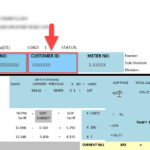When it comes to preparing for the GRE, you’ve probably heard whispers about shortcuts or cheating. While it might sound tempting to bypass the stress of studying, cheating can have serious consequences. In this article, you’ll get clear facts about what happens when someone cheats on the GRE and how it’s being tackled. Be prepared to learn things that some might ignore.
What Actually Happens if You Cheat?
First things first, cheating on standardized tests like the GRE is risky. The Educational Testing Service (ETS), the organization responsible for the GRE, has strict policies. According to their official guidelines, if you’re caught, your scores can be canceled, and you may be banned from taking the GRE in the future. Some individuals have also faced academic discipline from universities. The severity of the punishment depends on the situation, but ETS isn’t lenient.
In certain cases, people have tried to use outside help or technology during the test. With technology advancing, it’s easier to think about using phones or devices to sneak answers. But remember, ETS has strong security measures in place. They use video surveillance, artificial intelligence, and human proctors to monitor cheating attempts. When it comes to online versions of the GRE, the test platform tracks everything — from eye movements to background noises. So, even if it looks like you’re getting away with it, the chances of detection are pretty high.
According to a 2023 report from ETS, they’ve caught multiple cheating attempts during online testing, resulting in the disqualification of hundreds of scores. ETS even cooperates with legal bodies if needed, further showing how serious this can get.
The Methods People Use—and Why They Fail
Test-takers have tried all kinds of ways to cheat. Some pay for test answers online, others hire someone to take the exam in their place, and some attempt to sneak in unauthorized devices. These methods seem foolproof on the surface, but they often fail.
- Hiring a stand-in: A common method is hiring someone to impersonate the test-taker. But ETS requires biometric data, such as palm vein scans, and photos at test centers, which makes it nearly impossible to pull this off. Even for at-home exams, ID verification through video makes it hard to use this method successfully.
- Buying answers online: Another tactic people have tried is purchasing “leaked” test questions online. These questions, often sold on dark web forums, are typically fake or outdated. Even if they were real, ETS constantly rotates their question pool, making it unlikely that you’ll see those questions on test day.
- Using electronic devices: As mentioned earlier, using devices is another go-to strategy. But rooms are monitored so closely that it’s tough to sneak anything past test administrators. Electronic signals can also be detected easily, and cheating this way almost always leads to disqualification.
ETS’s Detection Methods
How does ETS stay ahead of the game? They invest heavily in test security, combining technology with human oversight. These are some of the methods they use:
- AI Proctoring: Online exams use artificial intelligence to monitor behavior in real time. It tracks abnormal movements or sounds that suggest cheating. This includes things like frequently looking off-screen or speaking out loud. If something looks suspicious, human proctors are alerted to investigate further.
- Biometrics: ETS uses palm vein scans, photographs, and other biometric data at testing centers to prevent impersonation. For at-home testing, they verify IDs and check the test environment through video. They also monitor the network activity of the computer to ensure no additional devices or programs are being used during the test.
- Data Forensics: Data patterns in your test answers are analyzed to detect any unusual activity. If you answer too quickly or if your answers are too similar to others, your test might be flagged for review.
In a case reported by the U.S. Department of Justice, test-takers involved in a cheating scheme faced fines and legal action after authorities discovered their methods. This highlights just how seriously cheating is taken, even outside the classroom.
Penalties Beyond Just Banning
The consequences of cheating are not limited to just being banned from retaking the GRE. Universities may take severe action against applicants caught cheating. According to ETS, they reserve the right to inform the universities to which the individual has applied about the infraction. This could damage your academic reputation permanently.
Even if a person manages to cheat and get a good score, the long-term risks are too significant to ignore. Many institutions have zero-tolerance policies for cheating, and any discovered dishonesty can lead to expulsion or degree revocation. Several graduate programs are increasingly using AI-powered tools to cross-check your application details and behavior patterns, making it harder to escape past fraud.
Does Everyone Get Caught?
Though ETS’s system is robust, some people do manage to slip through the cracks. However, just because someone cheats and isn’t caught immediately doesn’t mean they’re in the clear. The ETS revisits flagged tests and runs post-exam data forensics, even after scores have been released. Cheating detection isn’t always instantaneous, and you may receive a sudden email months after taking the test.
According to a 2021 Reddit survey by users who discussed cheating attempts, most who got away with it felt constant anxiety about their scores being revoked later. That psychological stress alone isn’t worth the risk for many.
Cheating Isn’t Worth It in the Long Run
Many experts and GRE prep instructors recommend investing in proper preparation rather than cheating. In the short term, you might think cheating is your only option, but there are plenty of legitimate ways to boost your score. Online forums like Reddit and Quora are full of people offering real advice, study tips, and encouragement.
A popular GRE prep platform, Magoosh, suggests spending a minimum of 100 hours studying for the GRE to see substantial improvements. While that may sound overwhelming, consistent practice can easily lead to noticeable gains in your score. And compared to the penalties of cheating, it’s a much smarter approach.
If financial concerns hold you back from paying for prep materials, there are free options available through ETS itself. They offer free practice tests and questions directly from previous exams. Forums also offer free resources, and plenty of online communities are eager to help.
Final Thoughts: Know the Real Stakes
Cheating on the GRE comes with far more risks than benefits. While some might say, “what’s the harm?” the reality is far more complicated. You’re not only jeopardizing your chance to attend grad school but potentially your entire academic career. Many people have shared their experiences on forums like Reddit, describing the stress and long-term consequences they faced after attempting to cheat.
The GRE is hard, but there’s no shortcut that’s worth losing everything over. With enough preparation and the right resources, you can improve your score without risking your future.Exposing the Risks of Cheating on the GRE: What You Need to Know







